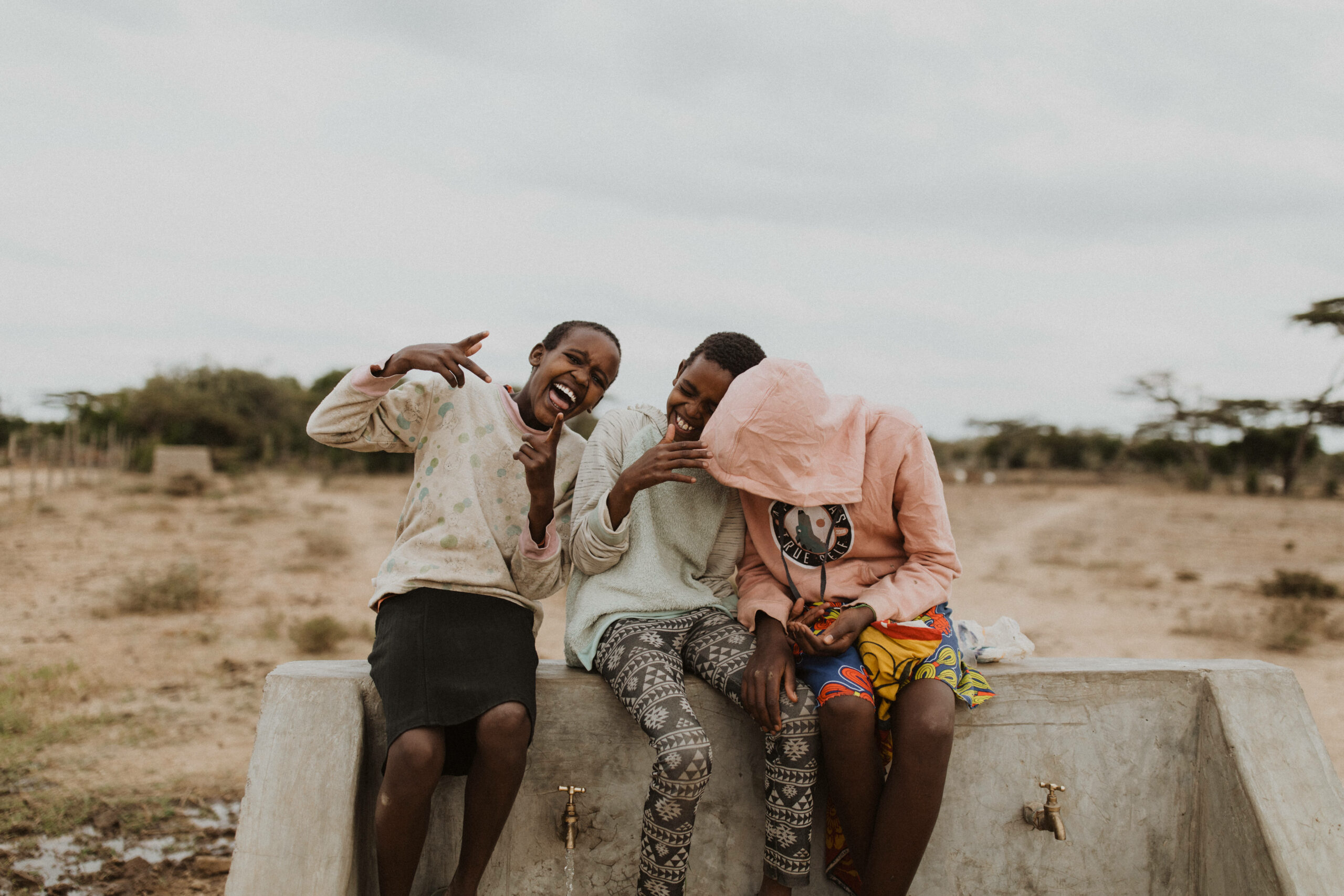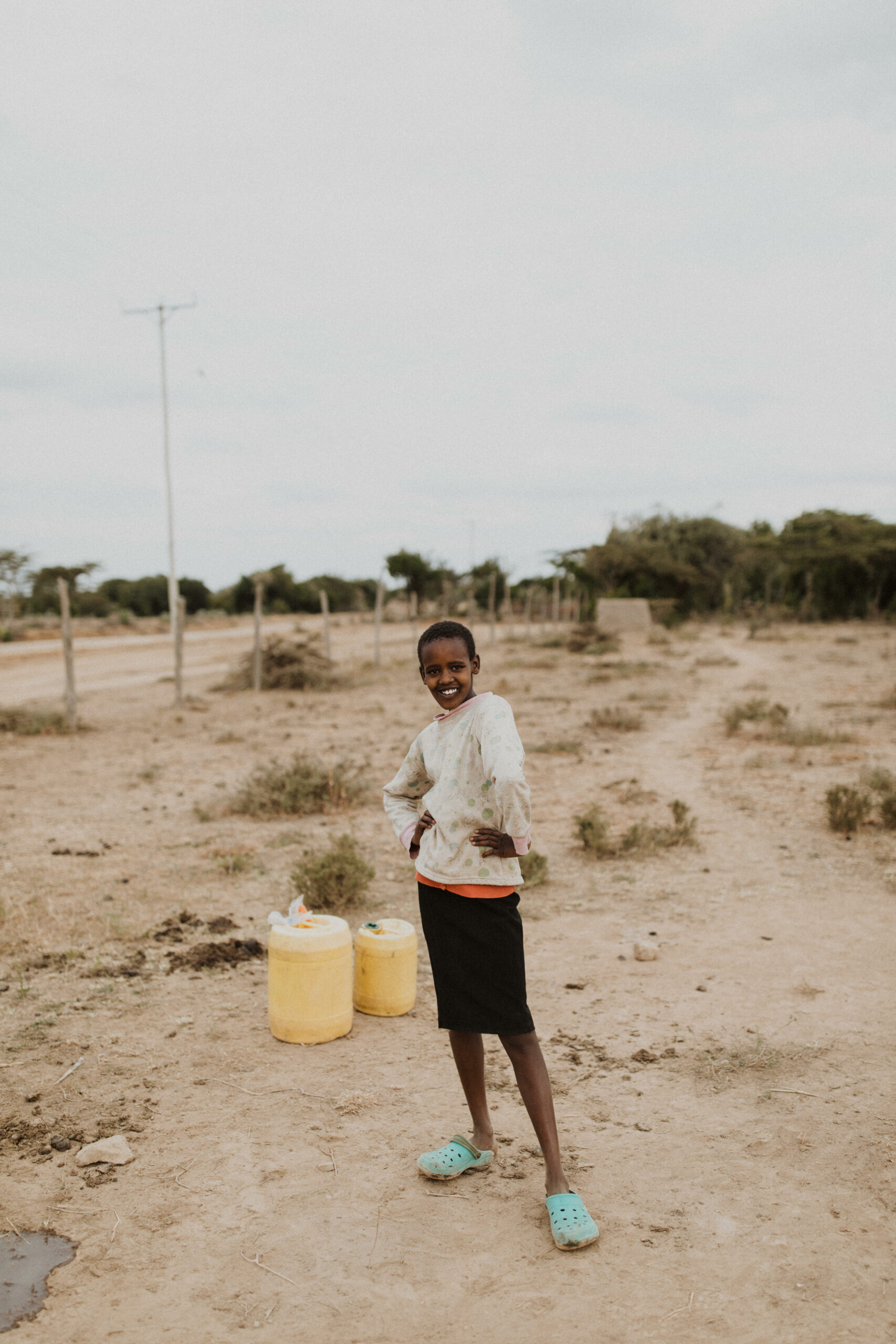Jemimh is just ten years old and lives in a little town in Kenya called Oletukat. To put it simply, the land is barren there. Everything you could imagine in this town is covered in a stale, brown dust. Naturally, as she walks around in her hometown, Jemimh’s bright blue crocs get covered in this dust, a constant reminder of the harsh conditions she lives in. But even with crocs coated in dust, their color still boldly screams out in contrast to the dull landscape. Similarly, even in the midst of this desolate place, Jemimh shines brightly with her lively personality.
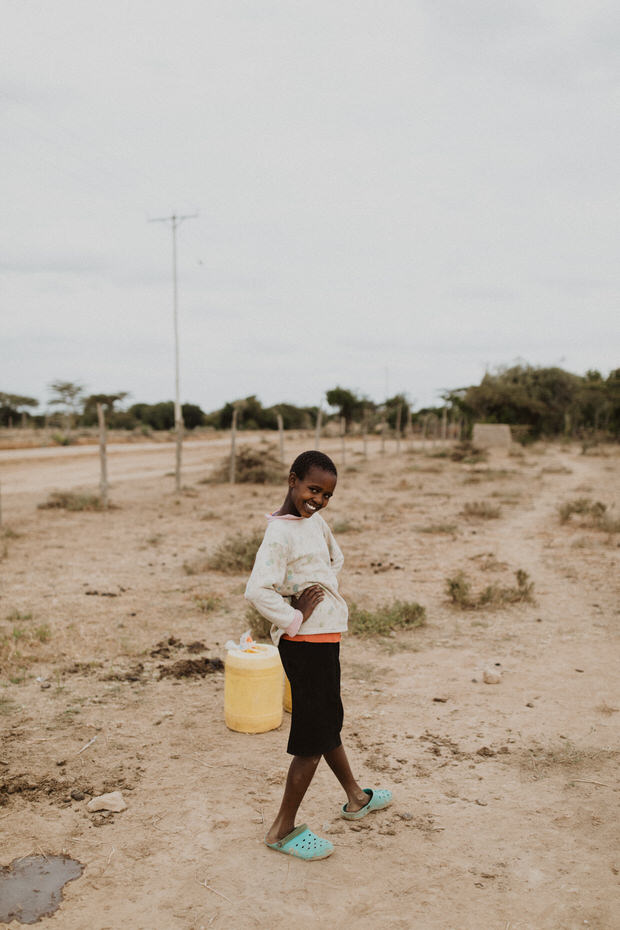
If you meet Jemimh, you meet a friend. You’ll talk about your favorite hobbies—for her it’s net ball, skipping rocks, and playing hide-n-seek with her siblings and friends. You’ll talk about your passions—for her it’s science. She will share her interests with you, while also making you feel known. She is cheerful, inviting people into her circle of friends all the time. She can easily whisk you away into a fun yet intense game at any moment, rallying the people around her to also become energized by the competition of a simple game, like a hand slap game.
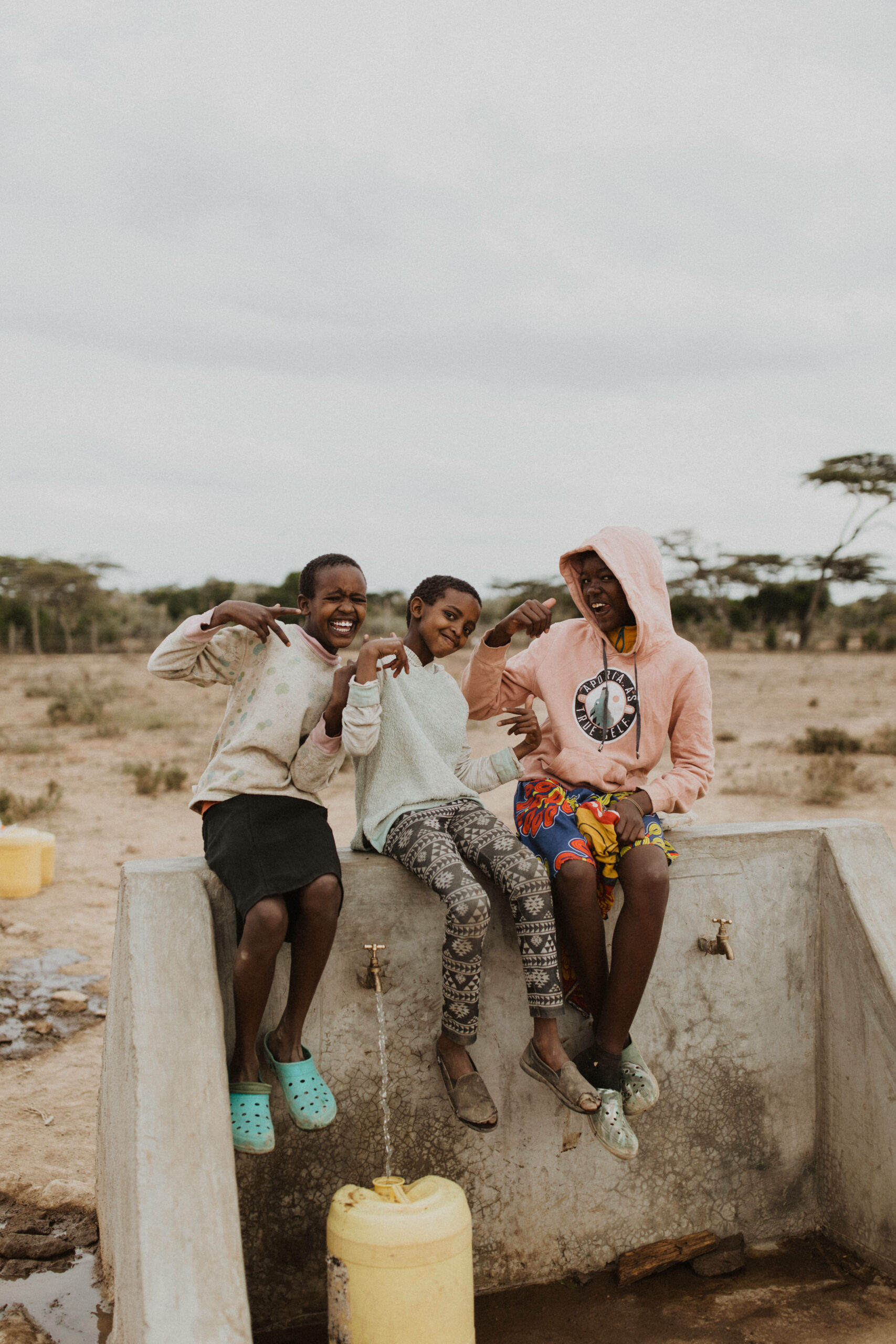
For people in Oletukat, access to clean water is difficult to find. They could buy clean water to drink, but this water is expensive. There are also a lot more things that require water in everyday life, like cooking and washing. Because of the expense of clean water, Jemimh and her family (a family of nine kids!) would draw water from wells that was unfiltered, murky, and dark. They would use this water to wash clothes and dishes, bathe themselves, and for cooking.
They made it work, but using dirty water for the basic needs of life isn’t something that should just have to be dealt with. Many organizations have been trying to assist in bringing clean water to the people of Oletukat—to Jemimh and her family. Drilling new wells wasn’t working—no water was found. A pipeline was built to bring water right into the town, and it did—but the water was dirty. So our partner organization, Nasha, began to work on a water filtration system, and we have joined them in trying to bring clean water to Oletukat. A system was planned, built, and implemented. Now Jemimh and her family can walk into town each day and get filtered water to use for their cooking and washing. The water isn’t completely purified, sparkling and clear, but it is filtered and not as murky as what they used before. It’s a step and progress to safer, cleaner water, which is something that impacts the lives of the people in Oletukat each and every day.
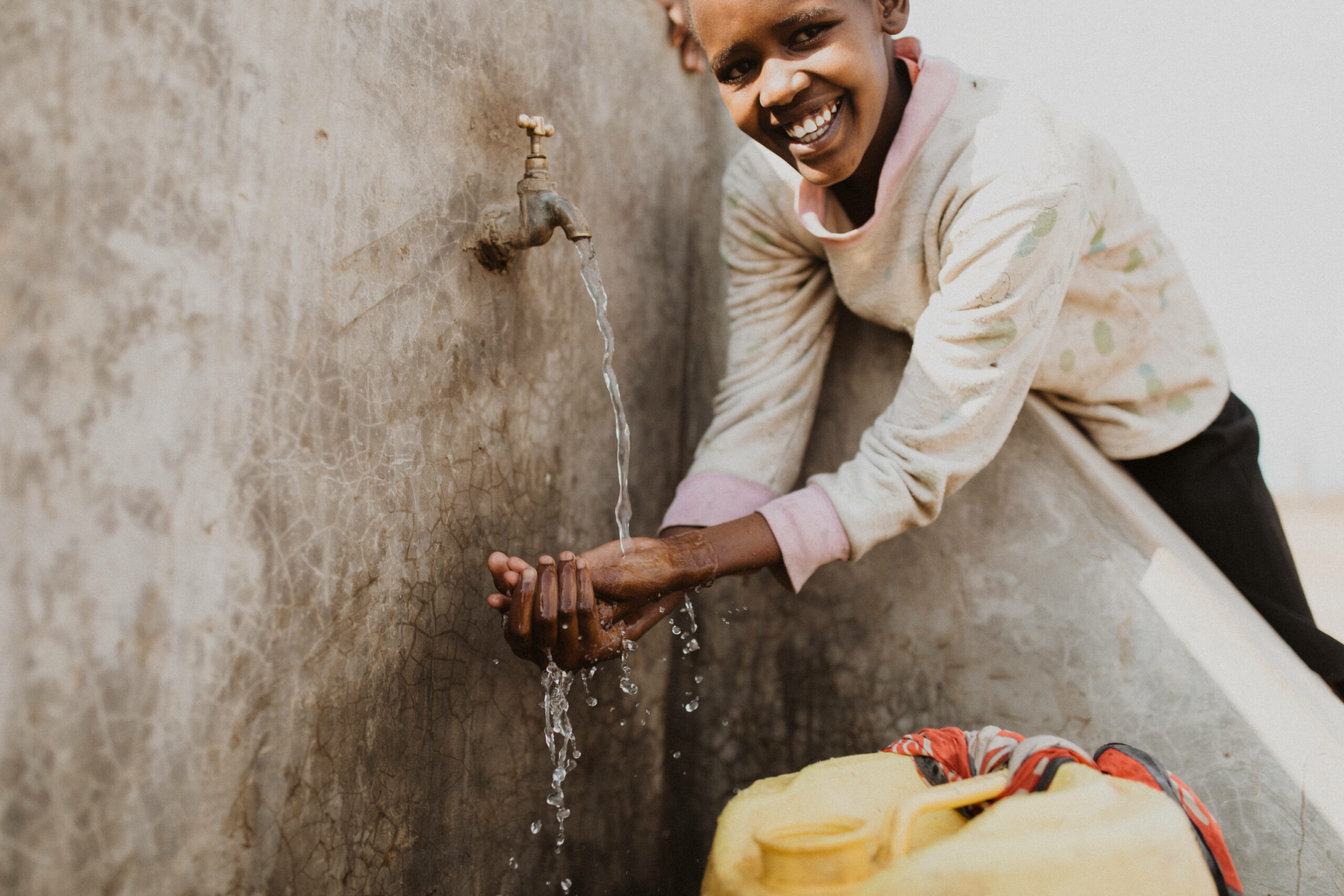
Jemimh helps her family get water every day. She walks into town, goes to the filtration pump, and fills containers with water. Then she carries them home. This process is so simplified for her and her family, and they no longer have to spend hours each day searching for and traveling to get water. Instead, she just has to walk to the filtration pump in town and wait about five minutes for her containers to fill with water.
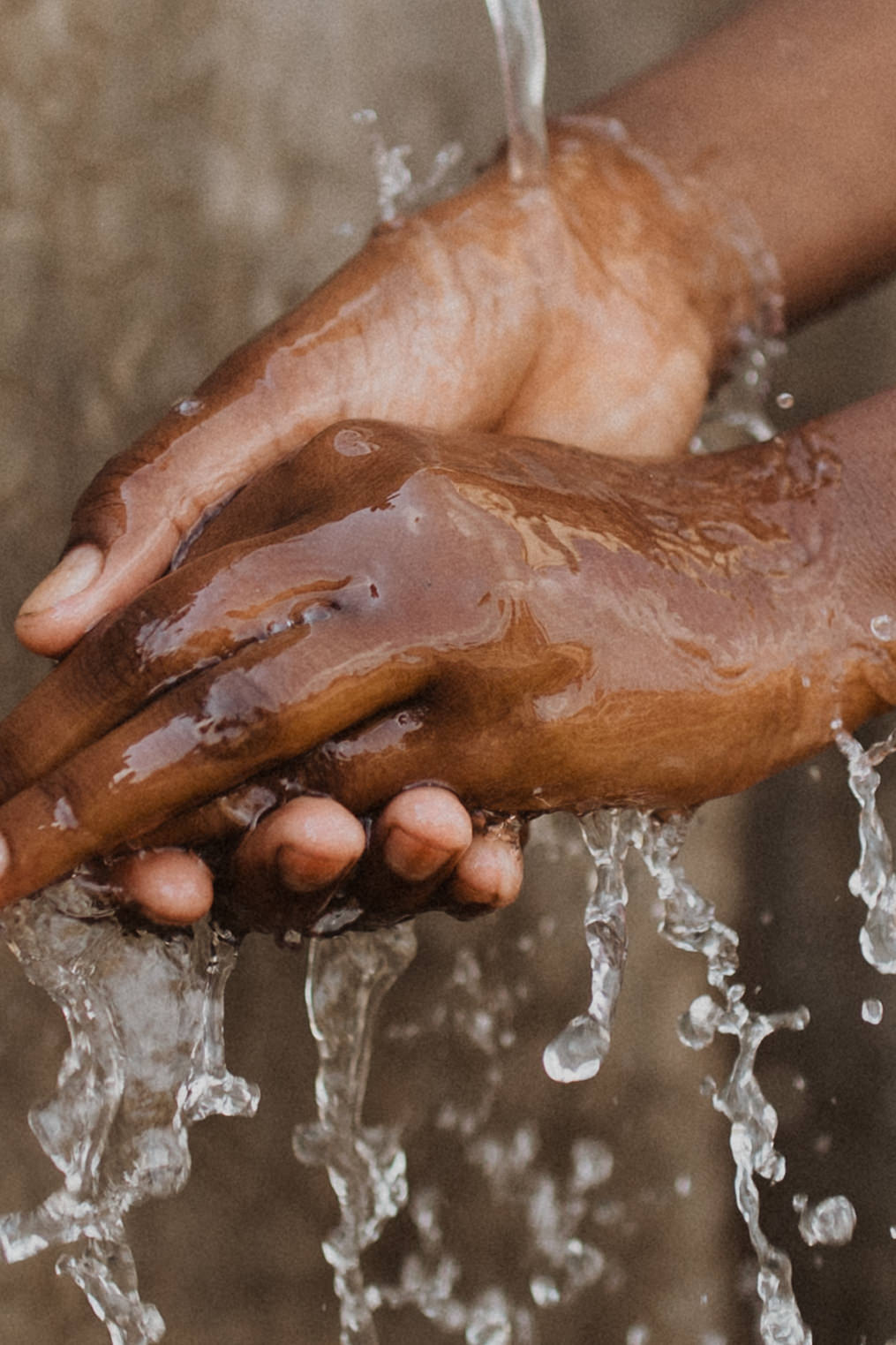
With all these extra hours of time, Jemimh spends that time of her day at school. She enjoys learning and has fun with her classmates. She can go to school clean and hydrated because of the water she has access to. Instead of spending hours walking to a well just to get dirty water anyway, she has time to be a kid… to play, to run, skip, hop, and laugh. She has time to slip on her bright blue crocs and go outside in a barren land, an excellent picture of the vibrant hope she has through the simple means of cleaner water.
